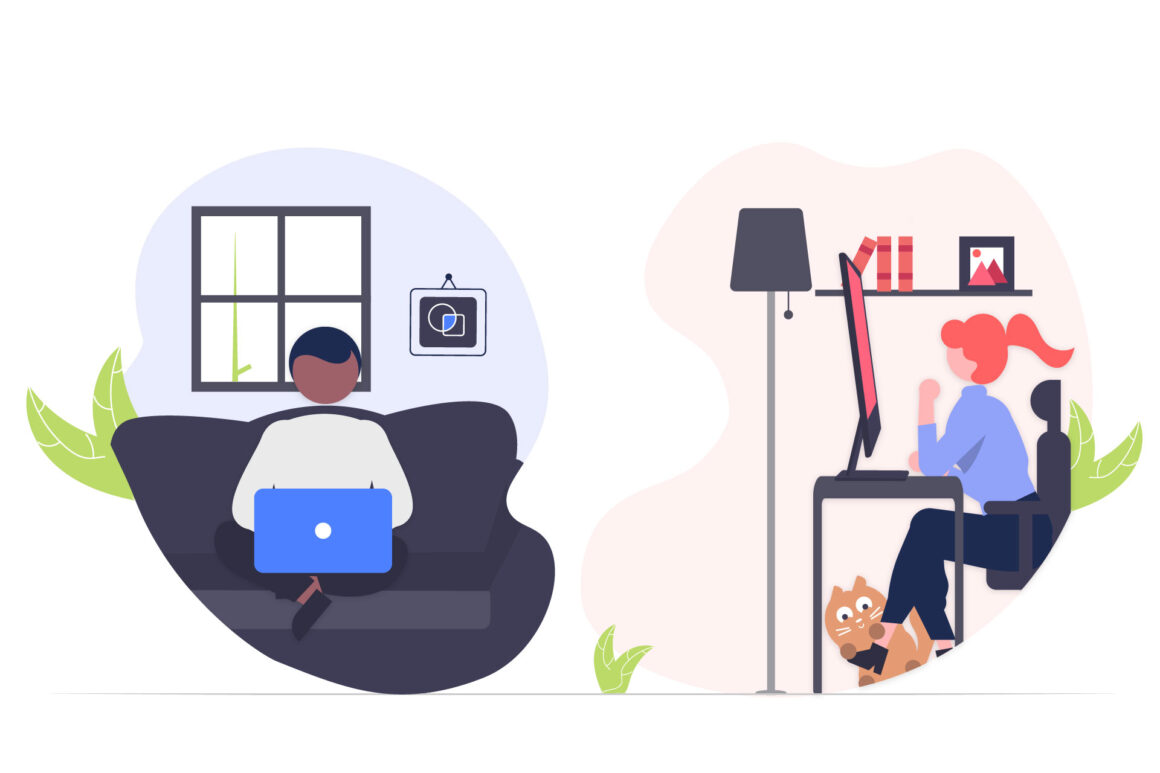Flexibility has always been part of the backbone at Fabrit. We were always able to move things around to benefit both our colleagues and our partners.
When the pandemic started and we were first advised to work from home by the authorities, we adapted quickly. We’ve been able to work from home prior to that, but most of our activity was centred around the office.
We enjoy spending time together and the flexibility of working from home from time to time was an appreciated perk by both our colleagues and within the local workforce.
But we have never worked remotely for an extended period of time. Which made us pause a little and reflect on the way we understand flexibility at Fabrit.
There’s a growing demand among younger workers for a less rigid work schedule. Research by Capability Jane found that 92% of millennials identify flexibility as their top priority when looking for a job.
We discovered that we all have the same understanding of flexibility, but from person to person, the perspective changes.
Here’s how flexibility looks like at Fabrit Global, throughout our colleagues’ eyes!
Flexibility at Fabrit
Our work philosophy is that our lives shouldn’t be exclusively centred around our work, but our work should be a pillar of our continuous growth and development as individuals.
That’s why flexibility came as a natural result of this vision.
A more academic definition of flexibility tells us it looks like this:
- The ability to deal well with unexpected situations
- Quick and proactive response towards sudden changes
- Acceptance and support for those who go through a change
Continuing on the academic side, research tells us that a flexible work environment can:
- Reduce stress
- Improve productivity, collaboration and work-life balance
- Increase trust
But when Fabrit first started, we obviously weren’t aware of all of these. The base for us was to show respect and support towards our colleagues’ personal lives.
This slowly evolved into a more structured approach:
- Flexible hours: early birds and night owls can schedule their own working hours, while closely collaborating with their teammates, to avoid disruptions
- Work from different locations: from the office, from the couch, or from a long trip that got you stuck in a plane of train, we can work from everywhere as long as we have a laptop and a stable Internet connection
For us, flexibility is primarily about making work work around our personal lives.
How It Feels for Our Colleagues
To give you a better understanding on how we make flexibility work for us, we asked some of our colleagues about what flexibility in the workplace means to them. Here’s what they said!

“For me, flexibility means that I can work from anywhere and make my schedule however I want. If I want to start the day later, because I want to workout in the morning, I can do that without any problems..” – George Onac, Senior Full-Stack Engineer
“To me, flexibility is about the working schedule. I love the idea of breaking my working hours as I wish, in case there are situations that I need to take care of. I don’t feel constrained to put all the 8 h in one day; if I feel more productive in one day, I can work a couple extra hours and take them off when I’m feeling low.” – Andrada Vadean, Junior Full-Stack Engineer


“As a mother with a young kid who often gets colds from kindergarten, I am more than happy that I can adjust my working hours around unexpected events. Everyone is supportive and flexible and I’m glad that I’m able to fit both my roles (as a software engineer and a mother) in my schedule, based on my needs.” – Anamaria Kiss, Senior Full-Stack Engineer
“Flexibility to me means that I can put personal affairs, before my job. When I was still studying for my bachelor’s degree, I was free to take time off as I needed without any fuss, and everyone was very supportive.” – Bianca Grecea, Mid Full-Stack Engineer


“I love how fluid our schedule is: if today I feel like working in the office, but tomorrow I want to go to my hometown and work from there, there isn’t any problem. I can adjust my working hours based on my needs.” – Marian Simonca, Senior Full-Stack Engineer
As you can see, we all have different takes on how we perceive flexibility. But at the end of the day, it’s about not making our jobs a major disruptor for our day-to-day lives. We are able to blend work and personal life to our benefit.
Addressing Concerns About Flexibility
We are entirely aware we are fortunate and privileged to work in such a flexible industry.
But when the entire team is spread around, there’s only natural to have some concerns about communication, community and accountability.
Our communication was always fluid and fast, and having an even more flexible working environment hasn’t brought any considerable impact to our communication.
As for the accountability part, each and every one of us is responsible for his own tasks and deadlines. This personal responsibility together with a clear and transparent operational process, grounded in effective and open communication, is a good mixture that helps us do our work well in a positive environment.
So, how can you address the flexibility-related concerns? The simple answer is that when you show trust and respect towards others, that’s exactly what you get in return.
We know we can rely on each other; especially when there is trust and support among us.
Where Is This Leaving Us
In almost two years of having around 80% of the team working remotely, we didn’t notice any serious work or productivity disruptions.
Of course, we all miss hanging out in the office without any restrictions, but we’re sure that will happen again soon.
Meanwhile, we are committed to sticking to the hybrid work schedule and finding new ways to help our colleagues become the best versions of themselves, both professionally and personally.





